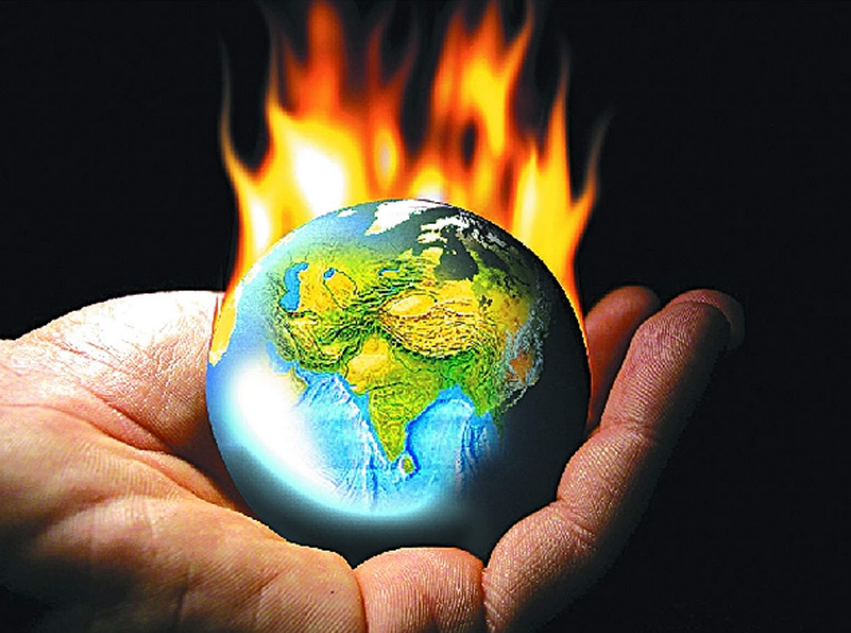
Earth recorded its hottest year ever in 2024, passing a major climate threshold, reported news agency Associated Press on Friday, citing weather monitoring agencies.
The news comes in the wake of deadly wildfires in the Californian city of Las Vegas, home to America’s film industry ‘Hollywood’.
“This is a warning light going off on the Earth’s dashboard that immediate attention is needed,” the AP report quoted University of Georgia meteorology professor Marshall Shepherd as saying, adding, ”Hurricane Helene, floods in Spain and the weather whiplash fueling wildfires in California are symptoms of this unfortunate climate gear shift. We still have a few gears to go.”
2024, Earth’s hottest year on record
Last year’s global average temperature easily passed 2023’s record heat and kept going even higher, surpassing the long-term warming limit of 1.5 degrees Celsius (2.7 degrees Fahrenheit ) since the late 1800s that was called for by the 2015 Paris climate pact, according to the European Commission’s Copernicus Climate Service, the United Kingdom’s Meteorology Office and Japan’s weather agency.
The European team calculated 1.6 degrees Celsius (2.89 degrees Fahrenheit) of warming, Japan found 1.57 degrees Celsius (2.83 degrees Fahrenheit) and the British 1.53 degrees Celsius (2.75 degrees Fahrenheit) in releases of data coordinated to early Friday morning European time, the AP report mentioned.
Global temperatures are soaring “beyond what modern humans have ever experienced”, the EU agency said Friday.
However, this still does not mean the internationally-agreed 1.5C warming threshold has been permanently breached, but the Copernicus Climate Change Service said it was drawing dangerously near, an AFP report mentioned.
Los Angeles is grappling with deadly wildfires that have destroyed thousands of buildings and forced tens of thousands to evacuate. US President Joe Biden called the fires the most “devastating” to strike California, emphasising that they serve as proof that “climate change is real.”
Copernicus reported that unprecedented warming has caused average temperatures in 2023 and 2024 to exceed pre-industrial levels by more than 1.5 degrees Celsius.
In 2015, around 200 nations agreed in Paris that limiting global warming to 1.5C was critical to avoiding the most severe impacts of climate change. However, the world is far from meeting this goal.
“We are now teetering on the edge of surpassing the 1.5C threshold,” said Samantha Burgess, deputy director of Copernicus climate.







